Middle East
Syria’s al-Sharaa confirms indirect talks with Israel amid soaring tensions | Politics News
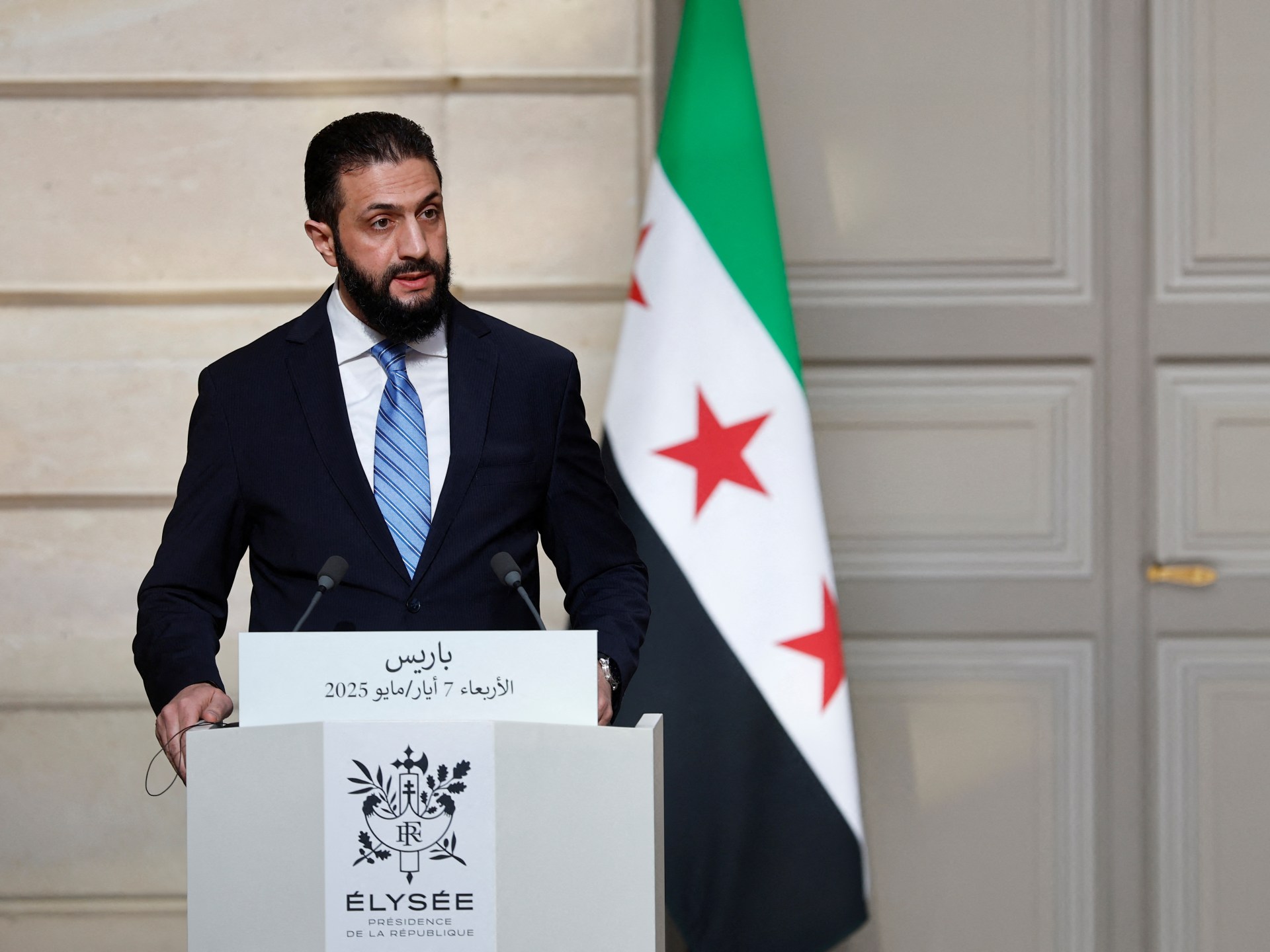
Interim President Ahmed al-Sharaa says Syria holding indirect talks with Israel ‘through mediators’.
Syrian’s interim President Ahmed al-Sharaa says his government has engaged in indirect talks with Israel in an attempt to ease escalating tensions between the two nations.
The announcement comes after an escalation in Israeli attacks on Syria last week, including a strike that landed just 500 metres (1,640 feet) from the presidential palace in Damascus on Friday.
Israel claimed its most recent air strikes were a response to what it described as threats to the country’s minority Druze community.
“There are indirect talks with Israel through mediators to calm and attempt to absorb the situation so that it does not reach a level that both sides lose control over,” al-Sharaa said, reiterating blame on Israel over what he described as its “random interventions” in Syria.
He also said Damascus was talking to states that communicate with Israel to “pressure them to stop intervening in Syrian affairs and bomb some of its infrastructure.”
There was no immediate comment from Israeli authorities.

Al-Sharaa’s remarks come during a landmark visit to Paris, his first trip to a European country since assuming office after he led opposition fighters in a lightning offensive that toppled longtime ruler Bashar al-Assad in December.
The visit required a special exemption from the United Nations, as al-Sharaa remains under international sanctions due to his previous role as leader of the armed group Hayat Tahrir al-Sham (HTS), a former al-Qaeda affiliate.
Lifting sanctions
Speaking in Paris after meeting President Emmanuel Macron at the Elysee Palace, al-Sharaa called for the lifting of economic restrictions on Syria, stating: “Nothing justifies maintaining sanctions imposed on the previous regimes.”
President Macron said France would consider gradually lifting European Union sanctions if Syria continued along its current path.
“I told the president that if he continues on his path, we would do the same, namely by first progressively lifting European sanctions, and then we would also lobby our American partners to follow suit on this matter,” Macron said.
The European Union has already lifted some restrictions, while other measures targeting individuals and entities are set to expire on 1 June. Sanctions relief in sectors such as oil, gas, electricity and transport remain crucial for Syria, where the World Bank estimates reconstruction of the country could cost more than $250bn.
Despite some easing of sanctions by European countries, the Trump administration has been more reserved in its approach to the new Syrian administration.
Macron revealed that he is urging the United States to delay its planned military withdrawal from Syria, arguing that lifting sanctions should be prioritised as a step towards ensuring long-term stability.
Al Jazeera’s Natacha Butler, reporting from Paris, said, “In return, Macron expects Syria’s new government to protect minorities, ensure stability and crack down on what he called terrorist organisations, including ISIS.”
“Sharaa is here to project a reassuring image to France’s Western allies, who have been a little bit wary and are looking to see what direction the new leadership takes,” Butler added.
Middle East
One killed, eight wounded as Israel hits Lebanon in major post-truce attack | Israel attacks Lebanon News
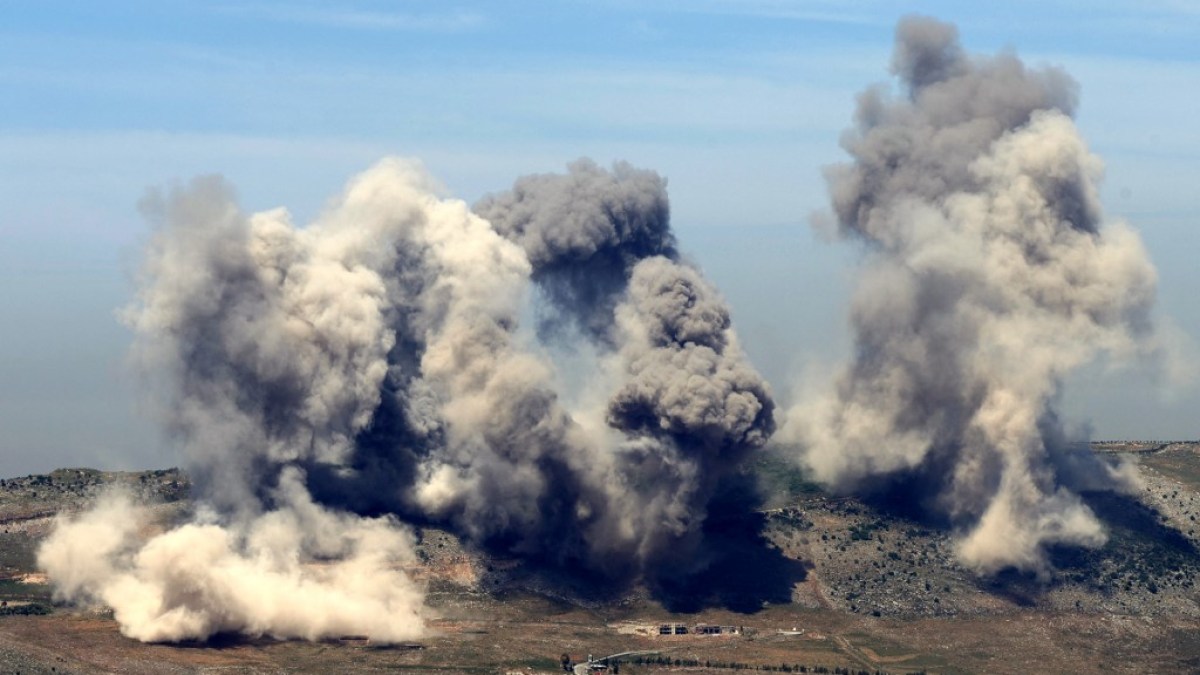
Lebanon’s Prime Minister Nawaf Salam condemns Israeli attacks, says ‘all ceasefire violations must end’.
Israel has launched one of its most intense aerial assaults on southern Lebanon since a truce halted last year’s war with Hezbollah, according to Lebanese officials and the Israeli military.
Air strikes on Thursday targeted several locations across the Nabatieh region, around 12km (7 miles) from the Israeli border. At least one person was killed and eight others injured, Lebanon’s Health Ministry said. Thick plumes of smoke rose from the bombed hilltops as residents fled the affected areas.
The Israeli army said its warplanes struck a “Hezbollah infrastructure site”, but gave no further details. The claim could not be independently verified.
There was no immediate response from Hezbollah, which had previously said it withdrew its fighters from the border following the United States-brokered ceasefire.
Lebanon’s President Joseph Aoun said in a short post on X that he was closely monitoring the situation in southern Lebanon after Israeli strikes hit the region.
Lebanese Prime Minister Nawaf Salam condemned the attacks. In a statement on X, he said: “All Israeli violations of UN Resolution 1701 and ceasefire agreements must come to an end. The Lebanese government has not – and will not – stop pushing for Israel’s full withdrawal from our territory.”
الدبشة pic.twitter.com/o54o2MwjX0
— المنشد علي بركات ( حساب جديد) (@AliBarakat2023) May 8, 2025
Although the truce officially ended hostilities, sporadic cross-border attacks have continued. Israel has regularly broken the truce and carried out air raids across southern Lebanon, also hitting Hezbollah-controlled neighbourhoods in Beirut’s southern suburbs.
Under the terms of the ceasefire, Hezbollah and other armed groups are not permitted to operate or store weapons south of the Litani River, while Israel is required to withdraw from southern Lebanon and allow the Lebanese army to deploy in the region. However, both sides have accused each other of violating the agreement.
Israel still occupies five strategic hilltops along the border. While rockets have been fired into Israel from Lebanese territory on two separate occasions, Hezbollah has denied involvement.
The recent escalation marks a sharp intensification of the conflict, rooted in Hezbollah’s support for Hamas during Israel’s ongoing war on Gaza.
Hezbollah’s deputy leader, Naim Qassem, has maintained that the group no longer keeps weapons in the border zone, in accordance with the truce.
Middle East
Documentary uncovers identity of Israeli soldier who shot Shireen Abu Akleh | Israel-Palestine conflict News
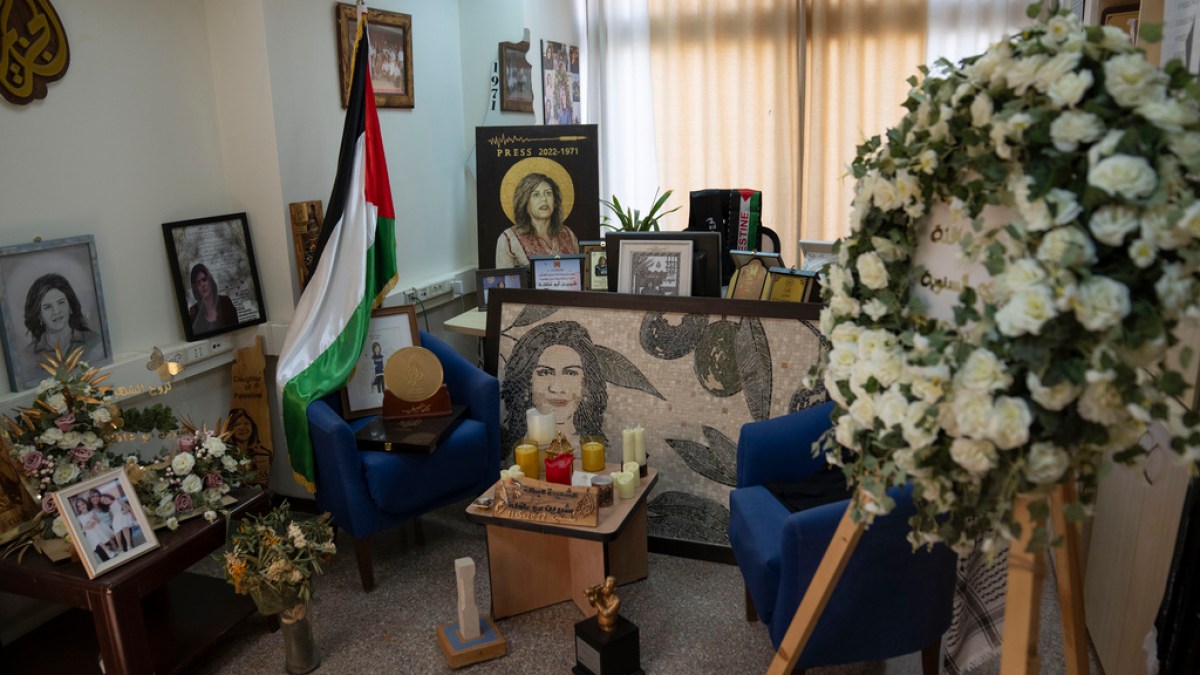
Who Killed Shireen? also lifts lid on US attempts to stifle truth about the 2022 killing of veteran Al Jazeera journalist.
Filmmakers behind a new documentary on the killing of Al Jazeera journalist Shireen Abu Akleh by Israeli forces say they have uncovered the identity of the soldier who pulled the trigger.
Who Killed Shireen?, a 40-minute investigative documentary released on Thursday by Washington, DC-based media company Zeteo, identifies the killer as a 20-year-old Israeli soldier who was on his first combat tour in the occupied West Bank and lifts the lid on attempts by the United States to avoid holding ally Israel accountable for the murder.
Dion Nissenbaum, the executive producer of the documentary, told Al Jazeera that its makers had set out to uncover exactly who was behind the killing – a secret closely guarded by Israel up to now, according to Zeteo – and that they hoped the findings would lead to further investigations by the US.
The administration of former US President Joe Biden had “concluded early on that an Israeli soldier had intentionally targeted her, but that conclusion was overruled internally”, he said.
“We found some concerning evidence that both Israel and the Biden administration had covered up Shireen’s killing and allowed the soldier to get away without any accountability,” he added.
Anton Abu Akleh, Shireen’s brother, said the documentary was “really important” for her family. “I’m sure it will shed more light and prove that she was systematically targeted like other journalists in Palestine by the Israeli army,” he said.
The documentary features exclusive interviews not just with ex-US officials but also former top Israeli officials and soldiers, as well as journalists who knew Shireen personally.
“We hope that people will be reminded of what an icon Shireen was,” said Nissenbaum.
In ‘cold blood’
Abu Akleh was wearing a helmet and a clearly marked press vest when she was killed while covering an Israeli raid on the Jenin refugee camp on May 11, 2022, an act that the Al Jazeera Media Network condemned as a “cold-blooded assassination”.
Investigations into her killing carried out by news agencies, rights groups and the United Nations have all concluded that Abu Akleh was killed – likely deliberately – by Israeli soldiers.
Israel initially tried to deflect blame for the incident and suggested that Palestinian fighters killed the journalist, but it eventually walked back that claim and acknowledged its troops were responsible for her death, saying it was “an accident”.
A year later, Israel’s military said it was “deeply sorry” for the death of Abu Akleh, but said it would not launch criminal proceedings against the soldiers believed to be behind the killing.
The US dropped its request for an Israeli criminal investigation after Israel’s apology.
Abu Akleh’s death shocked the world and focused an international spotlight on Israeli killings of Palestinian journalists.
Reporters Without Borders said on Friday that Israeli forces killed nearly 200 journalists in the first 18 months of Israel’s all-out assault on Gaza, at least 42 of whom were slain while doing their job.
Middle East
US official says Washington may advance Saudi deal without Israel: Reports | Israel-Palestine conflict News

Trump administration wants Israel ‘to come to its senses’ and strike a ceasefire deal on Gaza, Israeli media reports.
A senior United States official has reportedly warned that Washington could move forward with its deal with Saudi Arabia without Israeli involvement, unless Israel changes course, according to Israeli media.
The Jerusalem Post reported that the unnamed official met on Monday with families of captives still held in Gaza. During the meeting, the official said President Donald Trump is increasingly frustrated with Israel’s stance on the stalled ceasefire talks.
Trump intends to press ahead with the Saudi deal regardless of Israel’s position, said the report on Wednesday.
The US president is expected to visit Saudi Arabia, Qatar and the United Arab Emirates next week. Meanwhile, Israel’s ambassador to Washington is lobbying the White House to add a brief stop in Israel, two Israeli officials told Axios.
According to The Jerusalem Post, the US official told attendees Israel could face “a much heavier price” if it continues to oppose a ceasefire deal.
“President Trump is determined to move forward with a significant deal with Saudi Arabia, even without Israeli involvement,” the official reportedly said. “The ceasefire agreement with the Houthis is just a prelude. If Israel doesn’t come to its senses, even the ‘Deal of the Millennium’ will happen without it.”
The report said families of the captives hoped the meeting would result in greater international pressure on Israeli leaders to act. Some attendees said they were alarmed by the unusually blunt tone from the official as Washington has long been viewed as Israel’s closest diplomatic ally.
The Trump administration has sought to realign regional alliances, focusing on normalising ties between Israel and Saudi Arabia. “We hope Israel will board the historic train that has already left the station,” the US official reportedly said. “But the US will not wait at the platform.”
The official also echoed concerns from the families that ongoing Israeli military operations could endanger the captives.
What is the proposed US-Saudi-Israel deal?
The proposed US-Saudi Arabia-Israel deal aims to normalise ties between Riyadh and Tel Aviv in what would mark a historic diplomatic shift, brokered by Washington.
Building on the controversial 2020 Abraham Accords, the agreement would see Saudi Arabia formally recognise Israel – abandoning its long-held demand for a full Israeli withdrawal from occupied Palestinian territory as outlined in the 2002 Arab Peace Initiative.
In return, the US would offer Saudi Arabia a defence pact and access to advanced weapons, while urging Riyadh to scale back its growing ties with China and Russia.
Another pillar of the deal includes US support for a Saudi civil nuclear programme, though disagreements over uranium enrichment remain unresolved.
While Saudi Arabia originally insisted on concrete steps towards a two-state solution for Palestinians, recent reports suggest Riyadh may settle for symbolic concessions – such as freezing settlement expansion – if the US offers enough in return.
-
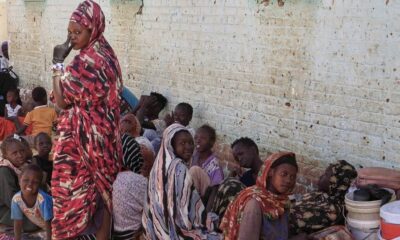
 Africa2 days ago
Africa2 days agoNew wave of Sudanese refugees flee into neighbouring Chad
-
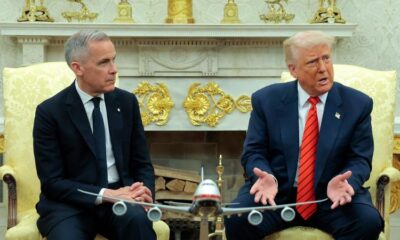
 Europe2 days ago
Europe2 days agoTrump’s Oval Office meeting with Carney didn’t reach Zelensky-level tension. But it wasn’t all neighborliness
-
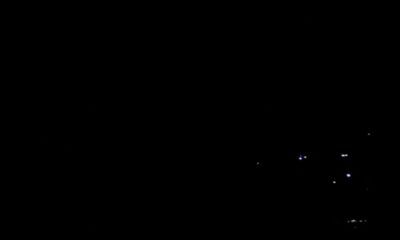
 Asia2 days ago
Asia2 days agoIndia launches military operation against Pakistan in major escalation
-
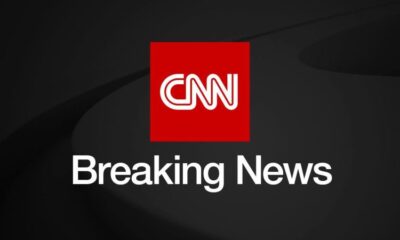
 Asia2 days ago
Asia2 days agoLive updates: India launches military operation against Pakistan
-
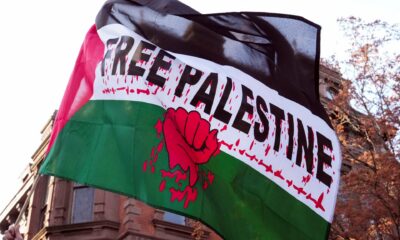
 Middle East2 days ago
Middle East2 days agoPalestine and the decline of the US empire | Israel-Palestine conflict
-
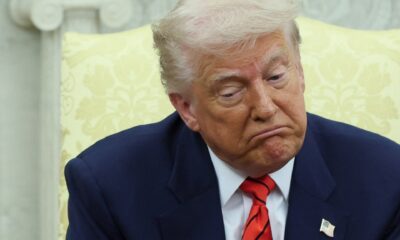
 Middle East2 days ago
Middle East2 days agoTrump says bombing of Yemen to stop as Oman confirms US-Houthi ceasefire | Israel-Palestine conflict News
-
Sports2 days ago
Kentucky Derby winner Sovereignty will not race in the Preakness
-
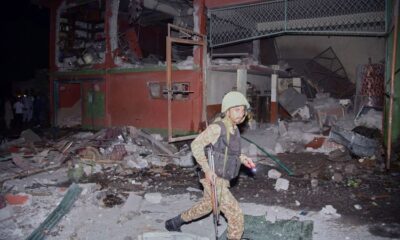
 Asia2 days ago
Asia2 days ago‘Operation Sindoor:’ Why India attacked Pakistan and conflict has escalated dramatically




